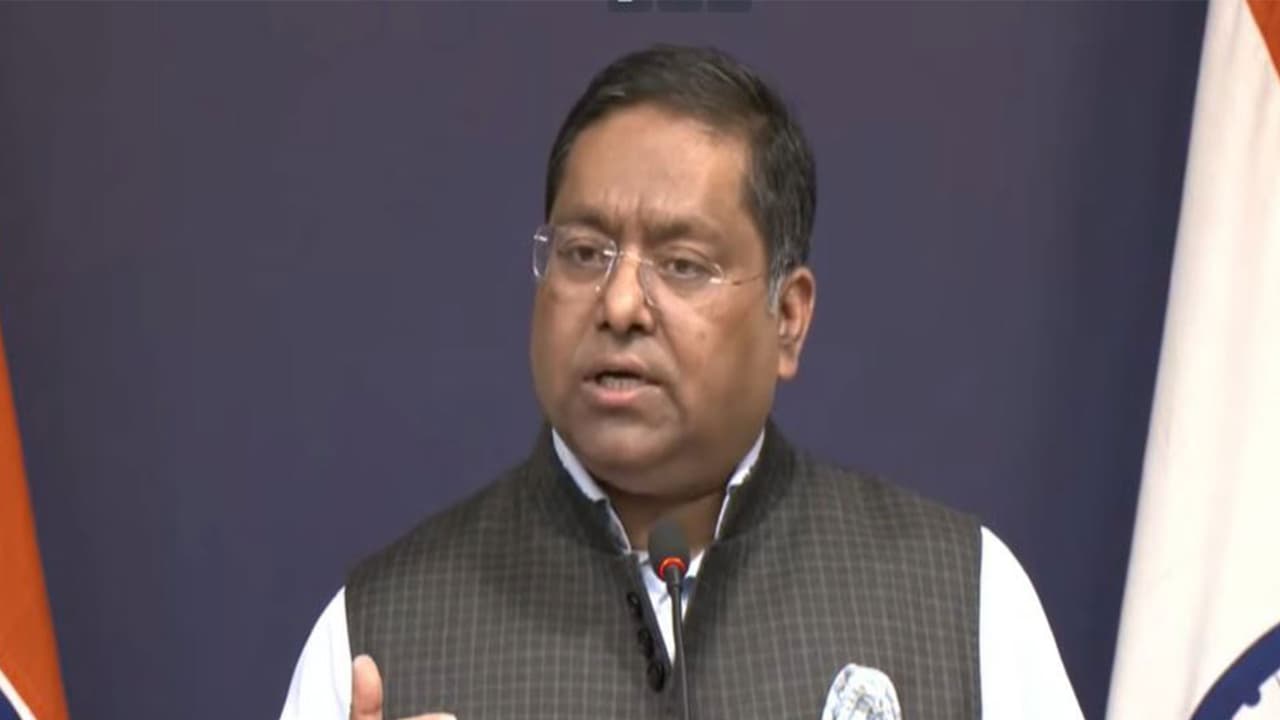India has reaffirmed that its energy decisions will prioritize affordable fuel for its 1.4 billion citizens, stating that US sanctions on Russian oil firms will not deter its national-interest-driven approach to energy sourcing.
India Prioritises Affordable Fuel Amid Sanctions
India on Thursday reaffirmed that its energy decisions will continue to prioritise securing affordable fuel for its 1.4 billion citizens, following the United States’ recent sanctions on Russia’s top oil companies, Rosneft and Lukoil. Addressing the weekly media briefing, Ministry of External Affairs (MEA) spokesperson Randhir Jaiswal stated that India’s position on energy sourcing remains unchanged and is guided by national interests.
“Our decisions regarding oil purchases are guided by market dynamics — the fluctuations and changes that occur in the global market. Our approach to sourcing fuel is shaped by our responsibility to provide energy to our people — to ensure that fuel is available at affordable prices, so that the needs of our 1.4 billion (that is, 140 crore) citizens can be met.” The comments were made in response to questions about whether the latest American sanctions on Russian oil companies would affect India’s imports.
Jaiswal said India would continue to make decisions that reflect the evolving global dynamics, but remain focused on energy affordability and security.
US Treasury’s Sanctions on Russian Energy Giants
Earlier this month, the US Department of the Treasury announced sanctions on Russia’s two largest oil firms, Rosneft and Lukoil, aiming to cut off key sources of revenue that fund Moscow’s war in Ukraine. The sanctions freeze assets in the US and restrict American entities from doing business with the companies or their subsidiaries. “Given President Putin’s refusal to end this senseless war, Treasury is sanctioning Russia’s two largest oil companies that fund the Kremlin’s war machine,” US Treasury Secretary Scott Bessent said.
India-Russia Relations Remain ‘Important’
Responding to a question on how the sanctions might affect India’s partnership with Moscow as Russian President Putin is scheduled to visit India in December for summit, Jaiswal underlined that India-Russia relations remain important and multifaceted. “India-Russia relationship is an important relationship. We have a multifaceted cooperation, and both sides are working to further enhance their engagement in several areas, including the economy, space, technology, trade, and other issues. So, we will continue to work on the areas that we have mutually agreed.,” he said.
Impact on Indian Oil Companies
The MEA also confirmed that several Indian companies have stopped purchasing oil from Russia after the US sanctions. “We have seen several reports, and our Indian companies have also informed us about their approach, which has already been shared with you. I have seen many reports issued by our Indian oil companies,” Jaiswal said.
He further added, “As far as the Government of India is concerned, we have made it clear that our decisions are based on the needs of our 1.4 billion citizens, our national interests, and also the dynamics in the global market. Taking all these factors into account together, we decide from where we will source our fuel and energy needs.”
Other Key Briefing Points
India-US Trade Relations
Regarding growing trade concerns with Washington, Jaiswal stated that both countries continue to discuss pending issues and move toward a trade agreement. “India-US relations are a comprehensive global strategic partnership. We remain engaged with both countries to continue to strengthen it further,” he said.
When asked whether India would impose countermeasures against US tariffs, Jaiswal said such matters fall under the purview of the Ministry of Commerce.
Sanction Exemption for Chabahar Port
India has also received a six-month exemption from American sanctions related to its involvement in Iran’s Chabahar Port project, a vital trade link for access to Afghanistan and Central Asia. “Yes, I can confirm that we have been granted an exemption for a six-month period,” Jaiswal said, adding that further details will be shared later.
Rare Earth Imports from China
During the briefing, Jaiswal also confirmed that some Indian firms have received licences to import rare earth magnets from China following recent US-China trade talks in South Korea, but did not comment on the US-China trade pact signed in South Korea today. “We are examining how the relaxations between the US and China may impact India,” he said. (ANI)
(Except for the headline, this story has not been edited by Asianet Newsable English staff and is published from a syndicated feed.)
